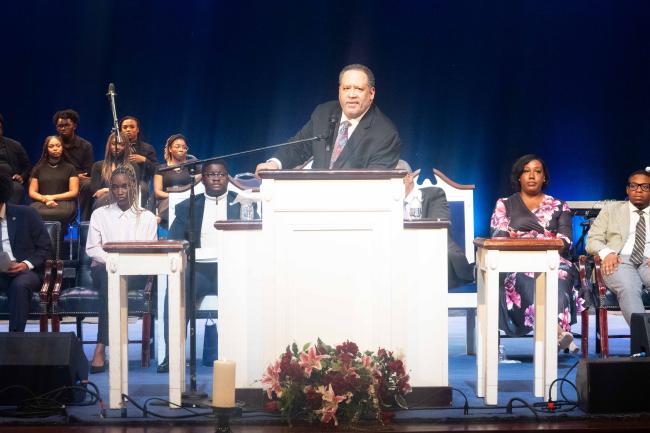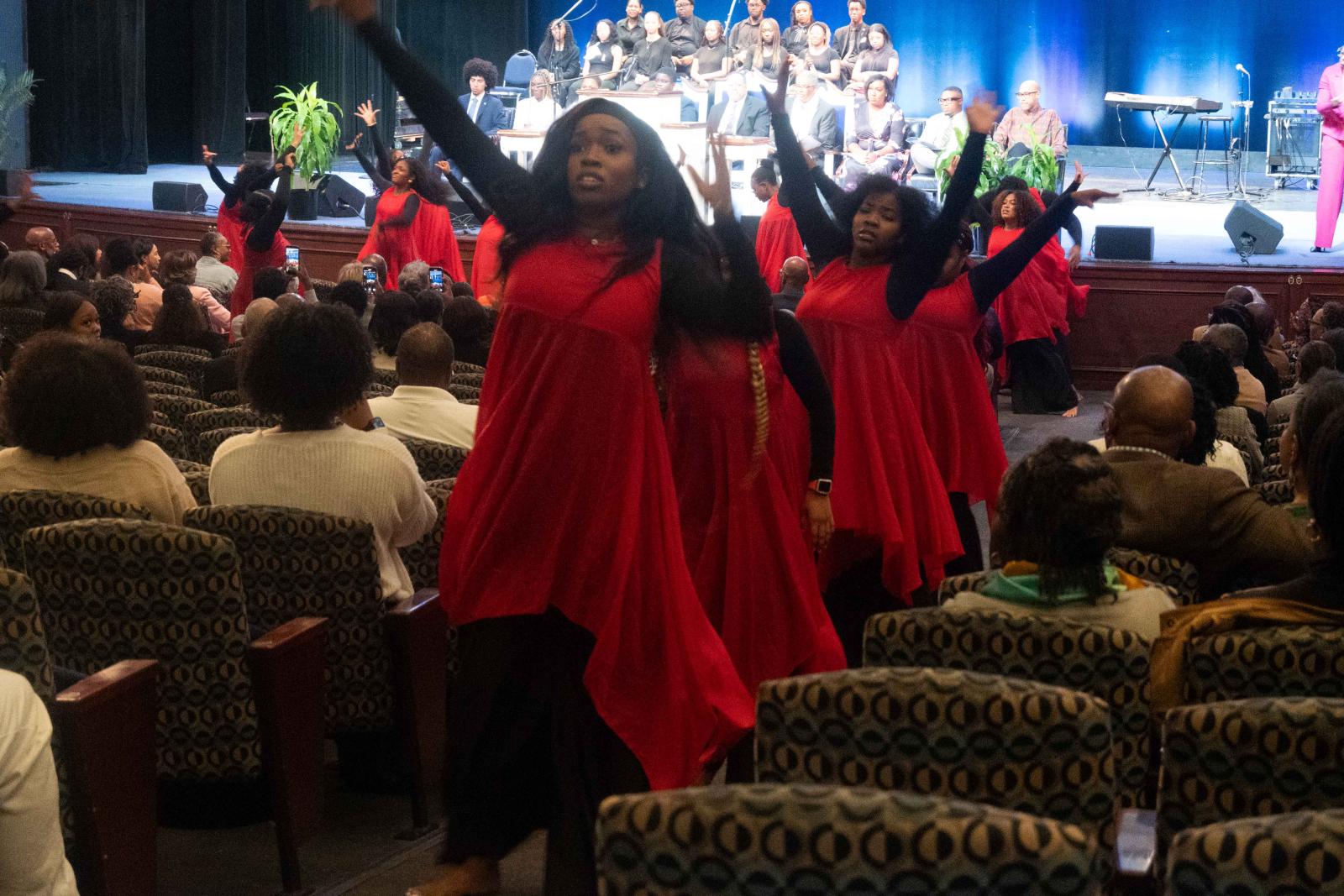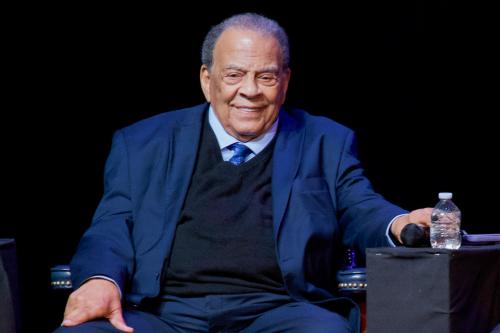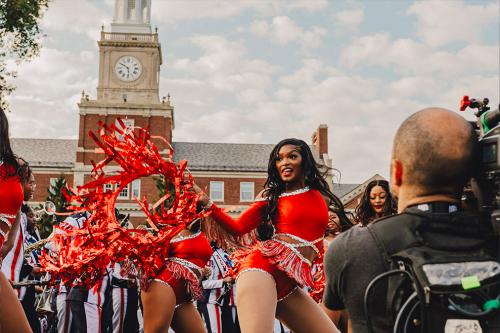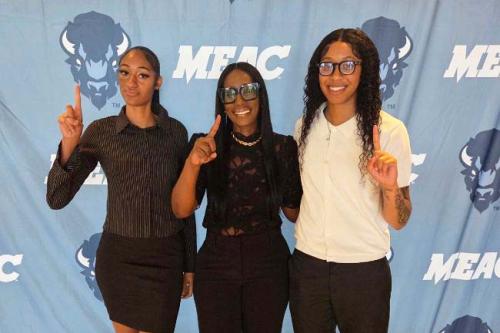Renowned author, lecturer, preacher, media personality, and distinguished professor at Vanderbilt University, Dr. Michael Eric Dyson, kicked of Howard University’s 2025 Homecoming week with a timely message focused on “healing the land.”
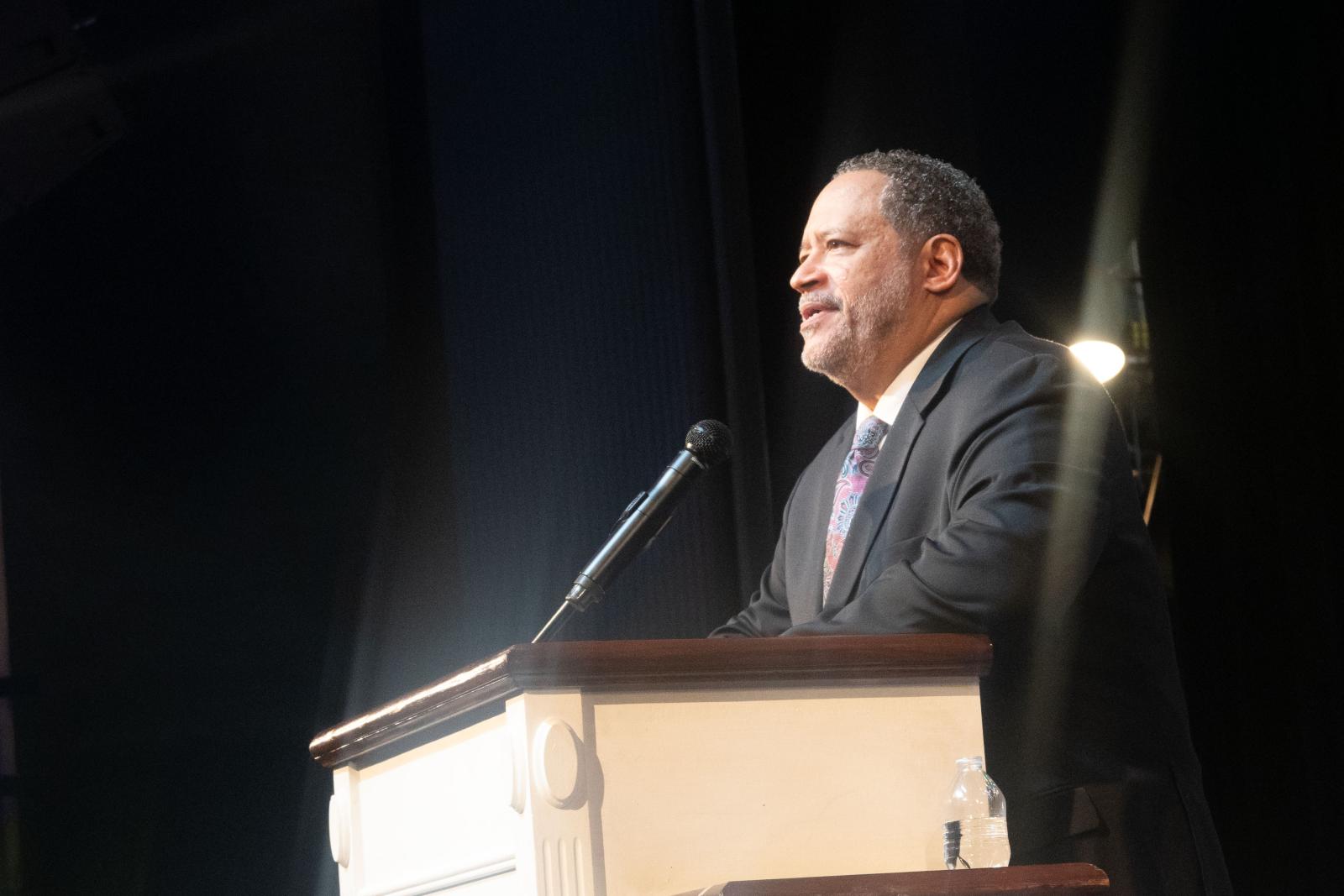
Dyson spoke to those gathered at Andrew Rankin Memorial Chapel with his signature blend of intellectualism and humor, mixed in with a good dose of the word — which on Sunday, Oct. 19, came from 2 Chronicles 7:14.
The verse reads: “If my people who are called by my name humble themselves and pray and seek my face and turn from their wicked ways, then I will hear from heaven and will forgive their sin and heal their land.”
The professor began by discussing Black language and the shifts in culture it’s brought about.
“David Skinner’s marvelous book, ‘The Story of Ain’t,’ talks about the shifts in the culture in the aftermath of this the Second World War, when America emerged as a political superpower and a cultural broker, and moved from intellectual elites to the middle class, as the nation embrace more democratic norms,” said Dyson. “Black language has always been received as vulgar and detestable until it sneaks its way into the heart of American culture. I mean, what would American language be without Black language?”
This discussion of language was but one example used by Dyson to illustrate the diversity that’s become a part of America and of its land, and the contributions that people of all backgrounds and identities have made to it. Therefore, no one group can claim authority over it — or Christianity.
While some may believe Christianity to be exclusive to a specific identity, Dyson emphasized to those in attendance that God’s love is for all and noted the dangers that can come from a belief that racial identity outweighs all.
“We must be reminded whose people we are. We must be reminded of our connection to God when our connection to our native land or our national identity gets the greatest priority,” explained Dyson. “We don’t owe primary allegiance to a piece of land, a specific geography, a stretch of terrain, but to God who demands loyalty above all.”
He continued, “the tragedy of our times is that too many of us who call ourselves Christians, pay primary allegiance to our national identity.”
In a system where some are “putting the flag above the cross and placing their ethnicity above their religious beliefs,” people of color or those who identify as LGBTQ or Muslim for example are made to be subordinate or inferior, Dyson shared.
“They are assumed to need God’s redemption from their sin of otherness. Their sin is their skin. Their sin is their orientation. Their sin is their ethnicity. Their sin is their very existence,” said Dyson. But this is not true.
“All human beings that reflect God are in the image of God, no matter their faith, their face, or their place in the world,” said Dyson, again stressing that we all “belong to God” and must therefore love and act accordingly in order to bring about a healing over the land.
“The word this morning reminds us that we are to be called by God’s name. If we are bold enough to make the claim that we are called by God’s name, we must accept the responsibility that goes with acting in God’s name. If we’re going to be called by God’s name, we must represent the name with love, compassion, and care — not hate, disrespect, and bigotry.”
View the Entire Service
All photos by Cedric Mobley.


